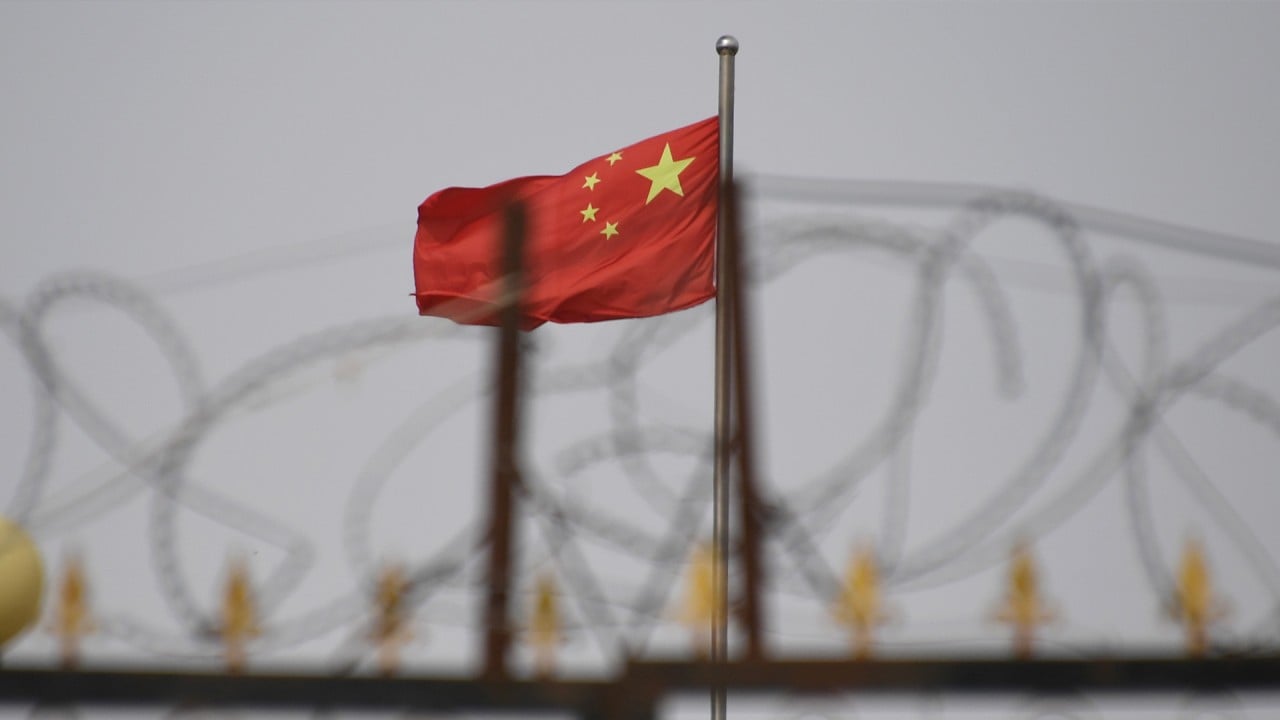
Chinese state media denouces‘two-faced’ Xinjiang officials accused of colluding with extremists
- A documentary by CGTN says the ‘enemy within’ includes a former deputy head of the political and legal committee and ex-education chief
- Beijing’s policies in the region have attracted increasing international criticism amid accusations of genocide and forced labour
Chinese state media has accused former officials in Xinjiang of colluding with terrorist groups in a documentary defending its policies in the far-western region.
The programme, with subtitles in English and Chinese, was aired on Friday amid growing international backlash over claims of human rights abuses in the region.
It was produced by CGTN, the international arm of state broadcaster CCTV, which released three episodes in the series in 2019 and 2020, following reports that a million Muslims were being held in detention camps in the region.
The United States, Canada, the European Union and Britain have all issued sanctions against Chinese officials and organisations accused of human rights abuses against Uygurs and other Muslim minorities. Beijing has retaliated with sanctions of its own.
The 55-minute documentary film was named The War in the Shadows and outlined what CGTN said were the causes of terrorist attacks within the region.
It consisted of four parts “the network”, “enemies within”, “the textbooks” and “the black hands.”The documentary included graphic footage of attacks on civilians recorded by surveillance cameras, starting with an attack in Urumqi in May of 2014, in which at least 39 people were killed and 94 injured.
A former local police officer said the attackers had been trained by terrorist groups outside China, had watched extremist videos and had made a statement of jihad by carrying out suicide attacks.

Xinjiang Party chief Chen Quanguo pledged in 2017 to target and remove the “two-faced” officials he accused of colluding behind the scenes with separatist forces. A string of senior Xinjiang officials in charge of security, propaganda, education and ethnic and religious affairs have since faced corruption charges.
The documentary named for the first time the “two-faced people” accused of backing the banned East Turkestan Islamic Movement, including Shirzat Bawudun, former deputy head of Xinjiang’s political and legal committee, which is in charge of maintaining social stability.
EU condemns China media ‘harassment’ after BBC journalist pressured to leave country
The documentary also said Bawudun, a former police chief in Moyu county and then head of the Xinjiang regional justice department, had collaborated with terror groups outside China, recruited people, raised funds and planned activities in China.
It said the “poisonous” textbooks in minority languages have been used in primary and middle schools for 13 years, blaming the director of the education department Sattar Sawut.
Bawudun and Sawut were given suspended death sentences.
The deputy director of the education department Alimjan Memtimin, who was shown confessing that “I am a double-dealing, two-faced man”, was given a life sentence.
“Those ‘two-faced people’ are the enemies in the shadows,” Murat Sheripjan, deputy director of the public security department of Hotan prefecture, said in the documentary. “We have to spot and eliminate them from the system. Otherwise, we can never remove the soil for terrorism.”
The documentary also sought to reinforce the narrative that the network of detention facilities in the region, which China insists are vocational training centres, can be compared to facilities to counter extremism in countries such as Britain and Singapore.
The documentary also featured an online censor, identified by the alias Abduweli, who targets videos released by groups such as the East Turkestan Islamic Movement.
US sharply criticises China in annual human rights review
He said that between 2008 and 2012 about 10 videos were posted online each year. “Since 2012, there has been an increase, with 200 to 300 each year,” he added.
He also called for international cooperation regarding the sources of terrorist content.



